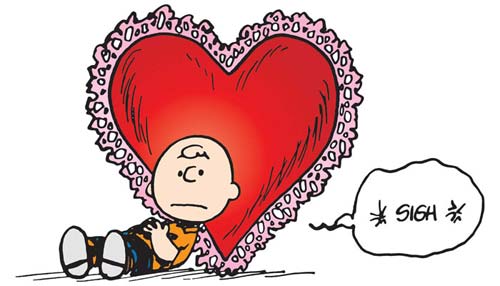However, as I reflect on the book's content and try to take into
account the context and time period in which this book was originally written,
I see much more purpose in the words that Bronte wrote. One of the
staples of the Enlightenment period and the "novel" was that it
played on the personal and private aspects of life. Meant to be consumed by the
individual rather than aloud in groups, the reader is able to connect with
those sometimes dark and imperfect aspects of the characters.
In Wuthering Heights we read of a man named Heathcliff who is at
the death bed of Catherine; the only woman he has ever loved. In a desperate
moment to be together prior to her death and as Catherine's husband approaches,
we read:
"‘I must go, Cathy,’ said
Heathcliff...
‘You must not go!’ she
answered, holding him as firmly as her strength allowed. ‘You shall not, I tell
you.’
‘For one hour,’ he pleaded
earnestly.
‘Not for one minute,’ she
replied.
He would have risen, and
unfixed her fingers by the act—she clung fast, gasping: there was mad
resolution in her face.
‘No!’ she shrieked. ‘Oh, don’t,
don’t go. It is the last time! Edgar will not hurt us. Heathcliff, I shall die!
I shall die!’
‘Damn the fool! There he is,’
cried Heathcliff, sinking back into his seat. ‘Hush, my darling! Hush, hush,
Catherine! I’ll stay.'"
Moments such as these are
exactly what made me dislike these classic love tragedies. Two people who are
desperate to be together, but know that it is impossible. However, when I look
at this writing and story line from the perspective of the enlightenment
period, it is beautiful writing that has shaped the way society is today!
Thanks to the raw and personal writing in novels such as Wuthering Heights, we
are able to relate to these characters and understand the beauty in the pain
that these characters feel.
In a way, as we feel the pain
of these characters we read about, we put into perspective the value of the
relationships we have in our own lives. Thanks to the experimental and
dramatized writing of the Enlightenment period, humanity can come together with
common understanding of things that may not often be talked about but are felt.
Having seen this beauty in writing from the Enlightenment period, I have gained
much more appreciation for those tragic love stories. I
might even admit to enjoying them (occasionally).
Image:
https://www.google.com/search?q=heart+break&rlz=1C1CHBF_enUS767US767&source=lnms&tbm=isch&sa=X&ved=0ahUKEwji_MLswq3eAhWSrFMKHes-BJ8Q_AUIDigB&biw=1242&bih=569#imgrc=-i0NM0q6fVfB8M:


I think one of the reasons behind the popularity of these novels were how much they were an escape for the common person. The conditions in the industrial revolution were so bad that these kind of silly love stories had by the nobles were the things of fantasy, but a fantasy that the common person could escape to to feel as though they were there themselves.
ReplyDeleteI love your topic! I can give you first-hand insight into Charlie Brown's woes, since that is who you chose for your picture. My dad (Charles M. Schulz) said, "happiness isn't funny." This is the main reason there is so much unrequited love in his comic strip.
ReplyDeleteI think it's true that the pain in the story can awaken us to the values we have in our human relationships. I think, though, that the book has been misunderstood. Unlike most love stories, the entire theme of the book comes to a far more ambiguous question- does love redeem such terrible people. Heathcliff and Catherine made quite despicable choices throughout their lives, but we generally consider love to be such a purifying emotion that we wonder whether it made them better people. I don't know what Bronte would say, but I think her position was that those 'silly love stories' had severe limitations in their power to redeem.
ReplyDelete